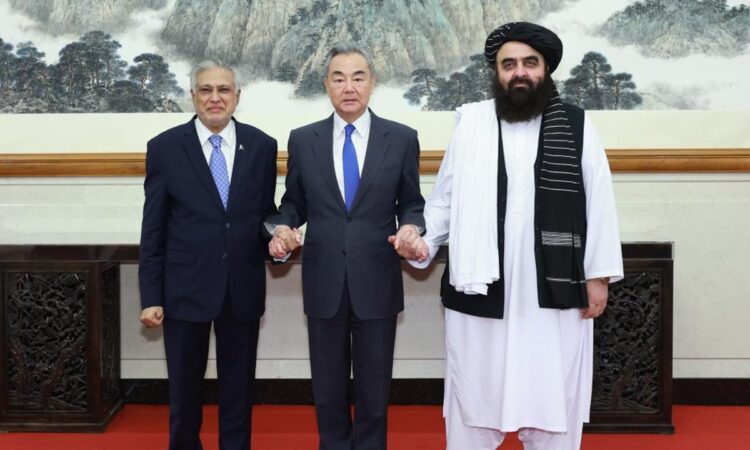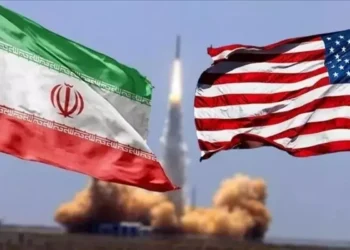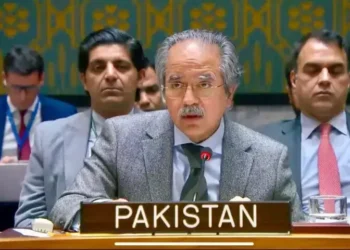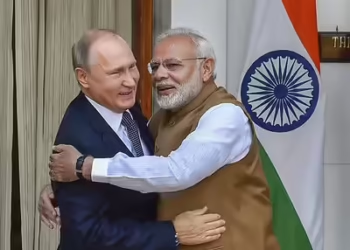KABUL; The foreign ministers of Afghanistan, Pakistan, and China are set to convene in Kabul on August 20 for high-level trilateral discussions aimed at boosting regional cooperation.
The meeting will bring together Chinese Foreign Minister Wang Yi, Pakistan’s Deputy Prime Minister and Foreign Minister Ishaq Dar, and Afghanistan’s Acting Foreign Minister Amir Khan Muttaqi.
Diplomatic sources say the agenda will center on enhancing counterterrorism collaboration and exploring ways to expand the multibillion-dollar China–Pakistan Economic Corridor (CPEC) to include Afghanistan, a move that could link the war-torn country more closely to Beijing’s Belt and Road Initiative (BRI).
CPEC, launched in 2013 — is a flagship BRI project connecting Pakistan’s Gwadar Port to China’s Xinjiang region through a network of roads, railways, and energy pipelines.
The Kabul talks come after a canceled visit earlier this month, when Muttaqi was scheduled to travel to Pakistan on August 5 but the trip was called off by both sides citing “technical reasons.”
The postponement had fueled speculation over strained communication channels, particularly amid persistent cross-border security concerns and disputes over militant sanctuaries.
Dar is expected to arrive in Kabul on August 19 for the trilateral meeting and will later host Wang Yi in Islamabad on August 20–21 for the annual Pakistan–China strategic dialogue.
That session is likely to review bilateral economic cooperation, infrastructure projects, and regional stability, with Afghanistan’s role emerging as a key focal point.
The trilateral format, initiated in 2017, has served as a platform for the three neighbors to address common challenges, ranging from terrorism and border security to economic connectivity. While Beijing maintains formal diplomatic engagement with the Taliban-led government in Kabul without granting official recognition it has sought to protect its strategic and commercial interests in the region, particularly in infrastructure, mining, and security cooperation.
Analysts say that Afghanistan’s potential inclusion in CPEC could offer economic lifelines through transit trade, investment, and infrastructure development, but warn that unresolved security issues and political legitimacy questions surrounding the Taliban administration remain major obstacles.



































































